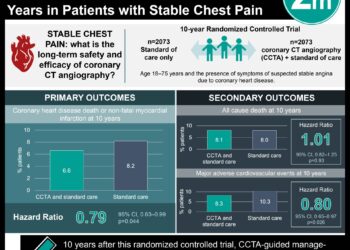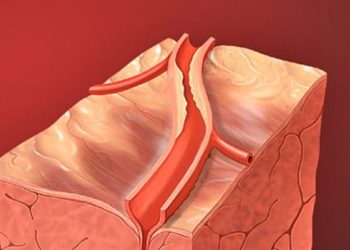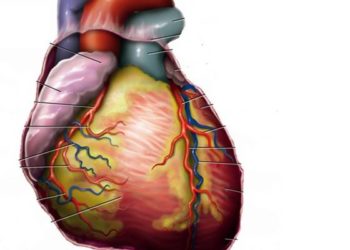Declining UK Coronary Heart Disease mortality likely due to improving population risk factors
1. Improvement of population risk factors and increase of hyperlipidemia and hypertension treatment helped in part to prevent or postpone 38,000 deaths due to Coronary Heart Disease in the United Kingdom between 2000 and 2007.
2. Population-wide decreases in blood pressure and cholesterol levels, not attributable to medication use, had a much greater impact on the decrease in mortality than statins and antihypertensives combined.
Evidence Rating Level: 1 (Excellent)
Study Rundown: The United Kingdom (UK) has witnessed a reduction in the number of deaths due to Coronary Heart Disease (CHD) over the past few decades. However, the impact of numerous interventions, including reduction of population risk factors and increase in antihypertensives and statins, has not been clearly assessed. In this study, data from randomized controlled trials (RCTs) and meta-analyses were pooled from 2000 to 2007, and the relative contributions of interventions were estimated using a modelling study. The model estimated that 38,000 deaths were prevented or postponed (DPP) over this time period and that 19% were likely due to increased medication uptake while 35% were due to reductions in population risk factors concerning cholesterol and blood pressure. A remaining 32% of the reductions in mortality were attributed to other risk factors or treatments that did not affect blood pressure or cholesterol, while 14% of the reduction in mortality was unaccounted for. In concert, there was a clear drop in systolic blood pressure (SBP) and cholesterol in both men and women. No statistically significant differences in mortality prevention were observed by socioeconomic status or gender.
Though the results of this study are subject to over or under-estimation due to its construct, a strong argument for the benefits of reduction in population risk factors and preventative strategies are evident. Studies of this nature are extremely beneficial as lawmakers continue to struggle with allocation of resources in the face of decreasing health care budgets. Unfortunately, because of the broadness of the risk reduction categories, it’s unclear which lifestyle interventions or public policy decisions contributed most significantly to the decreased mortality.
Click to read the study in BMJ Open
Relevant Reading: The population and high-risk approaches to prevention: quantitative estimates of their contribution to population health in the Netherlands, 1970–2010
In-Depth [meta-analysis]: The IMPACT model was used to estimate the relative contributions of many population-level impact factors using data compiled from numerous RCTs and meta-analyses. Using CHD death rates from 2000, a predicted rate of death from CHD was estimated for 2007 and the real number of deaths due to CHD were subtracted from it, giving an estimate of DPP for CHD. In turn, DPP from medications were estimated by taking the number of patients newly prescribed antihypertensives or statins and quantifying how many patients took these meds in 2000 and scaling it by total population to 2007, finding the difference in the actual rates of medication uptake, and estimating DPP by the relative risk reduction of these meds indicated in the data sets. A similar approach was taken to determining DPP from decrease in cholesterol or SBP, a measure of population risk reduction, and the DPP from medications were subtracted from this value to give the number of DPP from population risk reduction alone. Other known risk factors or treatments that may reduce CHD deaths were also used to estimate remaining DPP. A sensitivity analysis was done via Monte Carlo simulation using 5000 different draws from a probabilistic distribution for each value, and this was used to calculate all confidence intervals. 19% (CI95% 9-37%) of DPP were attributable to medication interventions, 35% (CI95% 22-46%) were attributable to population changes in risk reduction concerning cholesterol or SBP, 32% were attributable to other interventions, and 14% remained unaccounted for. Differences in DPP through either medication interventions or population based risk reduction were not statistically different when comparing gender or socioeconomic status.
More from this author: Helicobactor pylori infection may protect against Multiple Sclerosis in women, Childhood adversity linked to increased adult psychiatric medication use, Childhood exposure to Paracetamol not directly associated to increased asthma risk, Shift work impacts cognition, but likely not permanent, Second hand fine particulates dangerously elevated in smoking homes
Image: PD
©2015 2 Minute Medicine, Inc. All rights reserved. No works may be reproduced without expressed written consent from 2 Minute Medicine, Inc. No article should be construed as medical advice and is not intended as such by the authors, editors, staff or by 2 Minute Medicine, Inc.







